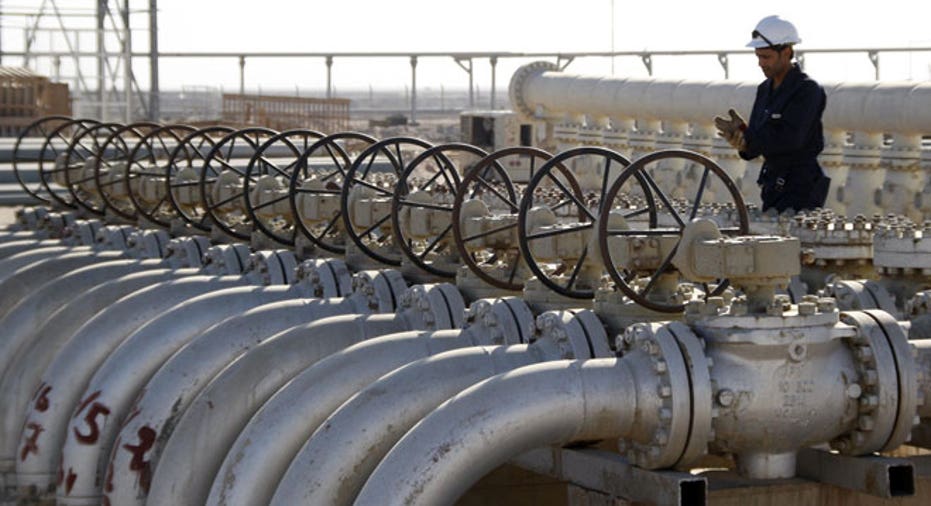Falling Oil Prices Tilts Political, Economic Balance in U.S. Favor

The drop in oil prices to their lowest in two years has caught many observers off guard, coming against a backdrop of the worst violence in Iraq this decade, heightened tensions between the West and Russia, and sanctions against Iran.
But as rising supplies of North American crude and tepid demand have pushed prices <LCOc1> below $100 a barrel, the move underlies how the shale oil revolution is creating a political and economic advantage for Washington and its Western allies.
Russia and Iran are heavily reliant on oil sales and face budget shortages at current price levels, analysts say, weakening their position when negotiating over Ukrainian sovereignty or the Iranian nuclear deal.
And higher oil production from the United States as well as Canada is providing a buffer against the threat of retaliatory supply curbs from Russia or further disruptions to supplies from the Middle East.
"The increase in production is definitely benefiting the United States," said Professor Paul Stevens at the Chatham House think tank in London.
"The Russians are very exposed to lower oil prices. We don't know to what extent it will influence their behavior in Ukraine, but they're certainly going to feel pressure on their budget."
Russia's ruble currency has already fallen to a historic low against the dollar as its economy is hit by sanctions from the United States and European Union over its involvement in Ukraine. That increases the price Russians must pay for many imports, from vegetables to luxury goods.
Daily oil production in the United States has risen sharply since the financial crisis. In 2010 the country still imported half of the crude it consumed, but the U.S. Energy Information Administration forecasts that will fall to little more than 20 percent next year.
Even as the United States has largely maintained its ban on exporting crude, it has left a lot of barrels from West Africa and the Middle East looking for new homes. While U.S. energy company profits might take a hit from lower prices, consumers will benefit more from spending less at the pump.
For Iran, a lower oil price not only harms its economy, already hit by sanctions that specifically try to cut its oil sales. It also means there is less pressure on the West to reach a deal quickly over Tehran's nuclear program.
With oil prices falling, the immediate economic incentive of getting Iranian barrels smoothly back to the world market is diminished, analysts say, allowing Western powers more leeway to drive a harder deal.
Some energy analysts even say Islamic State, which has captured a number of oilfields in Syria and Iraq, will be hurt by lower oil prices as it is forced to discount further the black market sales that help fund the militant group.
"Recent advances by the Islamic State (IS) have disrupted Middle East politics and shifted incentives for key regional and global players," Bank of America-Merrill Lynch analyst Francisco Blanch said this week, arguing that U.S. ally Saudi Arabia may be comfortable with lower prices.
"Lower oil would hurt IS, Iran and Russia, but help the West," Blanch said, adding that he saw the breakeven price for Russia's budget at around $105 a barrel.
OPEC REACTION
For Saudi Arabia, the world's largest crude exporter, lower prices may create some short-term budgetary pain, but observers believe the kingdom is willing to absorb the impact as it does greater damage to regional rivals such as Iran.
Saudi Arabia has said for years that it will supply the world with the oil it needs.
"Have you ever seen me concerned?" Saudi Oil Minister Ali al-Naimi said on Thursday in Kuwait when asked whether the price fall was worrying the kingdom.
"This is not the first time prices change, they always change. It's a dynamic process," he told Reuters.
Other Gulf delegates attending a meeting of oil ministers from the region said the price drop was unlikely to spur action from the Organization of the Petroleum Exporting Countries (OPEC) unless crude fell below $85 a barrel.
"It is a fact which is bound to focus minds in the Gulf and in wider OPEC but we also need to remember that this follows many months with good prices from their point of view," Samuel Ciszuk, senior adviser on energy security to the Swedish Energy Agency, told the Reuters Global Oil Forum.
Saudi Arabia is likely to "micromanage" supplies at it has for a number of years, Ciszuk said, but it was unlikely to push for an official OPEC supply cut.
While U.S. oil output has been rising fast, part of the big jump in supplies has come from countries that remain at risk of supply disruptions, including Libya and Nigeria.
"No fundamental improvement in the stability of those countries has actually taken place, which means that the added supply is extremely vulnerable," Ciszuk said.
Libya's oil production has rebounded to more than 800,000 barrels per day, the National Oil Corp said this week, eight times the amount of just a few months ago.
But the increase, which followed a deal to end a near year-long rebel port blockade, has come at a time when the government is losing control of the country, with an armed group taking over the capital Tripoli last week.
For now, however, the U.S.-led surge in supply and weak demand have seen traders start to store additional barrels as they wait for prices to recover.
"Given the volatile situation in the MENA (Middle East and North Africa) region," the International Energy Agency said, "this is a benefit to global energy security."



















